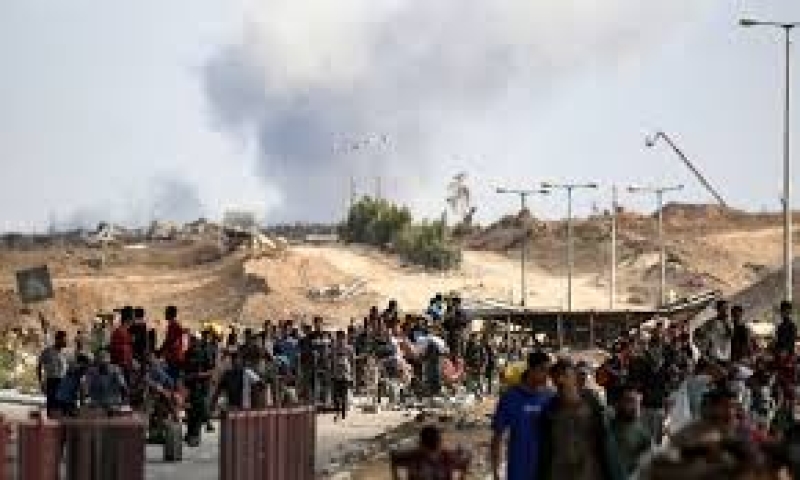- Wealthy Nations Urged to Reduce Climate Debt Burden |
- July Charter final recommendations Oct 15: Consensus Com |
- UN to cut 25% of its global peacekeeping force for US funding strains |
- Thakurgaon farmers happy as canal revives farmlands |
- Trump says Israel, Hamas agree to 1st phase of his peace plan |
Hamas and Israel Begin Egypt Talks under Trump Gaza Plan

Representational photo
Delegations from Hamas and Israel have begun indirect talks in Egypt aimed at ending the nearly two-year war in Gaza, under a peace plan proposed by US President Donald Trump. The negotiations come amid continued Israeli air strikes and growing humanitarian concerns in the region.
The first round of discussions concluded on Monday “amid a positive atmosphere” and is expected to continue for several days. Held behind closed doors under tight security, the talks are conducted through mediators, weeks after Israel attempted to target Hamas’s lead negotiators in Qatar.
Preparations for the talks focused on establishing conditions for the release of hostages and prisoners. Egyptian and Qatari mediators are working to create a framework for returning hostages held in Gaza in exchange for Palestinians held in Israeli prisons.
Trump, whose envoy Steve Witkoff and son-in-law Jared Kushner are involved in the negotiations, expressed optimism about the prospects for a deal. “I think Hamas has been agreeing to things that are very important… I think we’re going to have a deal,” he said.
Hamas’s lead negotiator Khalil al-Hayya, who survived last month’s Israeli strike on its leadership in Doha, met with Egyptian intelligence officials prior to the talks. A Palestinian source close to Hamas indicated the negotiations will be difficult, citing ongoing hostilities and Israel’s continued offensive.
Israeli air strikes continued on Monday, killing at least seven Palestinians, according to Gaza civil defence officials. Despite the violence, both Hamas and Israel have reportedly responded positively to Trump’s proposals, although significant challenges remain.
The peace plan envisions the disarmament of Hamas, gradual withdrawal of Israeli forces, and a phased hostage-prisoner exchange. Hamas’s military wing has expressed willingness to suspend operations if Israel halts its bombardment and withdraws troops, while Israel has pledged to secure the release of hostages.
The first phase of the plan anticipates the release of 47 hostages in Gaza in exchange for hundreds of Palestinian detainees. The International Committee of the Red Cross has offered to facilitate the exchange and assist with aid access in Gaza, which continues to face severe humanitarian shortages.
The Trump roadmap also proposes governance reforms for Gaza. Hamas and other factions would be excluded from administrative roles, with control temporarily vested in a technocratic authority overseen by the United States. Hamas has insisted on having a role in the territory’s future, highlighting the political complexity of any agreement.
Residents of Gaza, devastated by nearly two years of war, hope for a swift resolution. “The war has destroyed everything I built throughout my life,” said Mohammed Abu Sultan, who fled Gaza City with 20 family members. “We have been running from death for two years.”
Hamas’s October 2023 attack initially took 251 hostages, 47 of whom remain in Gaza. Israel’s retaliatory offensive has left tens of thousands dead, with health ministry figures reporting at least 67,160 Palestinian fatalities. Trump’s plan anticipates Israel releasing more than 1,700 Palestinian detainees, including 250 with life sentences, in exchange for the hostages.
Israeli military chief Lieutenant General Eyal Zamir warned that failure of negotiations would lead to renewed combat operations. Observers note that while both sides have engaged positively with Trump’s framework, achieving a detailed agreement on troop withdrawals, disarmament, and governance will be a complex and lengthy process.
The talks represent a critical opportunity to halt the humanitarian crisis in Gaza, secure the release of hostages, and chart a pathway toward a durable ceasefire, though analysts caution that political, security, and logistical hurdles remain significant.

